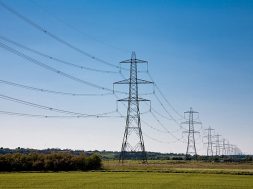
Global banks keep up pace with $742bn in fossil fuel finance despite climate pledges – EQ Mag Pro

World’s largest lenders provided only slightly less financing last year than in 2020, analysis shows
JPMorgan Chase remains the biggest financier of fossil fuels
Cumulative fossil fuel financing, 2016-21

Global banks provided $742bn in financing to coal, oil and gas companies last year, despite the fanfare of climate pledges by lenders that signed up to former Bank of England governor Mark Carney’s industry alliance, according to the latest comprehensive analysis by an activist group.
Fossil fuel financing remained dominated by the same four US banks, led by JPMorgan Chase, and followed by Wells Fargo, Citi and Bank of America, according to the annual report produced by a coalition of campaign groups organised by the Rainforest Action Network.
All four banks are members of the so-called Net-Zero Banking Alliance that is part of Carney’s Glasgow Financial Alliance for Net Zero umbrella group. The group made the claim at the UN climate summit in Glasgow in November that $130tn of private sector assets was committed to achieving net zero greenhouse gas emissions.
Overall, the world’s 60 largest lenders provided only slightly less financing for fossil fuels in 2021 than the $750bn recorded in 2020, the RAN report found. The banks have provided a total of $4.6tn since the Paris Agreement was signed in 2016, peaking in 2019 at $830bn, it said.
The energy crisis that has been exacerbated by Russia’s invasion of Ukraine has driven expectations that the demand for fuel will support coal, oil and gas production in the short term.
Although the total amount provided by the banks in 2021 for fossil fuel expansion fell to $185.5bn from $319.7bn in 2020, that decline “may be cancelled out in the year ahead by pressures in energy markets”, said James Vaccaro, executive director of the Climate Safe Lending Network, a group of banks, NGOs and investors.
“There is very little to feel positive about,” he said. The findings were in “stark contrast” with banks’ climate pledges, and showed that “there are still considerable flows of finance to fossil fuel companies at similar rates to that in previous years”.
JPMorgan was the biggest western financier of the Russian state energy company Gazprom over the past six years, according to the RAN analysis.
In total, JPMorgan funding of fossil fuels companies in 2021 stood at $61.7bn, up about $10bn after falling by a similar amount the previous year. The bank said it was “taking pragmatic steps” to meets its emission reduction targets “while helping the world meet its energy needs securely and affordably”.
Wells Fargo similarly recorded a bounce back by about $20bn to $46.2bn in 2021, after the biggest backer of US fracking put the fall the previous year down to the slump in oil prices.
Citi moved behind Wells Fargo in 2021, providing $41bn of financing, down from $49bn the year before. The bank said its strategy was based on “responsibly driving the transition to a net zero economy and . . . focused on working with our fossil fuel clients to help them decarbonise their businesses”.
Similarly, the Bank of America lowered its fossil fuel financing activities to about $32bn in 2021, from $42bn the year before. The French banks also pared back their activities in 2021, after a surge the previous year.
Although many banks had climate policies in place, they were often worded in such a way as to be ineffective, the RAN report said. For example, exclusions related to project-specific finance, or only limited lending and not underwriting.
Of the 44 banks covered by the report that had committed to net zero emissions goals by 2050, it found 27 did not have a “meaningful no-expansion policy for any part of the fossil fuel industry”.
That enabled fossil fuel financing to continue without breaching policies, the report said. Soon after the launch of the Net-Zero Banking Alliance, founding signatories including Citi, BNP Paribas and Barclays took part in multibillion-dollar financing deals with companies including Saudi Aramco and the Abu Dhabi National Oil Company, the state-owned oil companies, and the US oil major ExxonMobil, the report noted.
Banks’ financing exclusion policies often focus on coal, the most polluting fossil fuel that has become a focal point for policymakers.
Yet only about 4 per cent of the $4.6tn in fossil fuel lending and underwriting recorded since 2016 went towards coal mining companies, and the bulk of coal financing came from Chinese state-backed banks, the report said. Roughly a quarter of the total financing went to utilities, including coal power generators, and about two-thirds went to oil and gas.
The analysis also noted the “alarming” increase in the financing of tar sands oil projects, which jumped 50 per cent between 2020 and 2021 to $23.3bn.


















